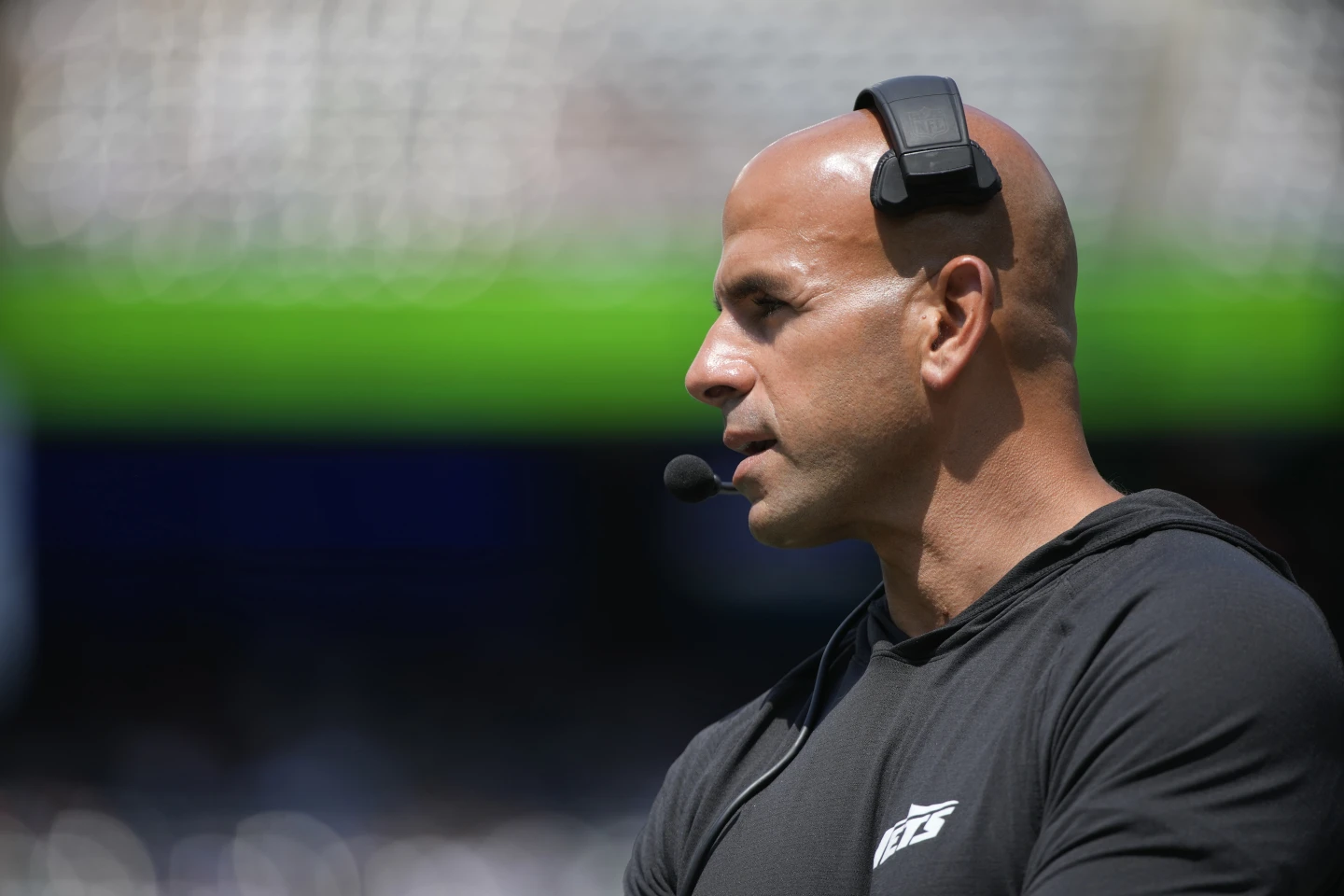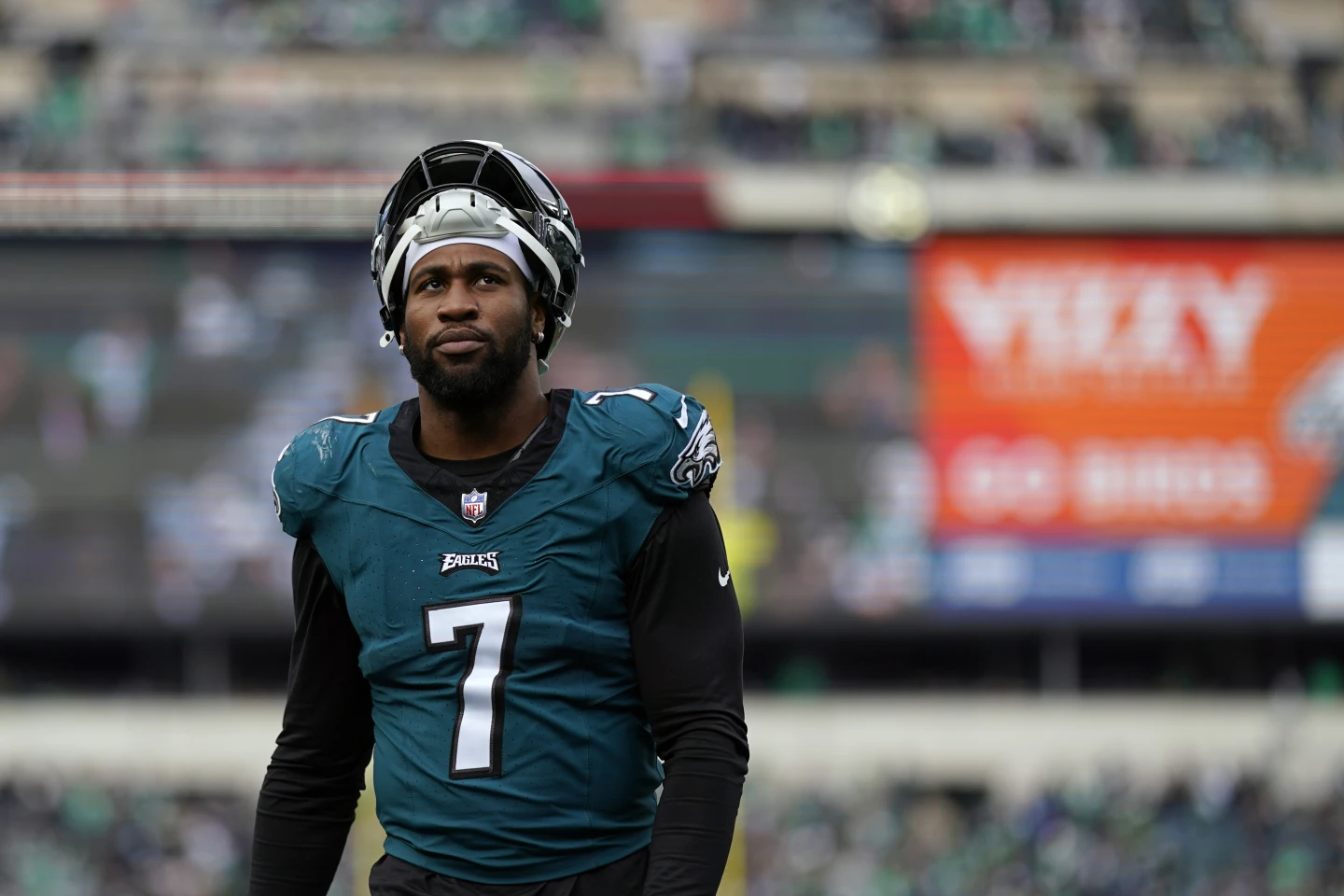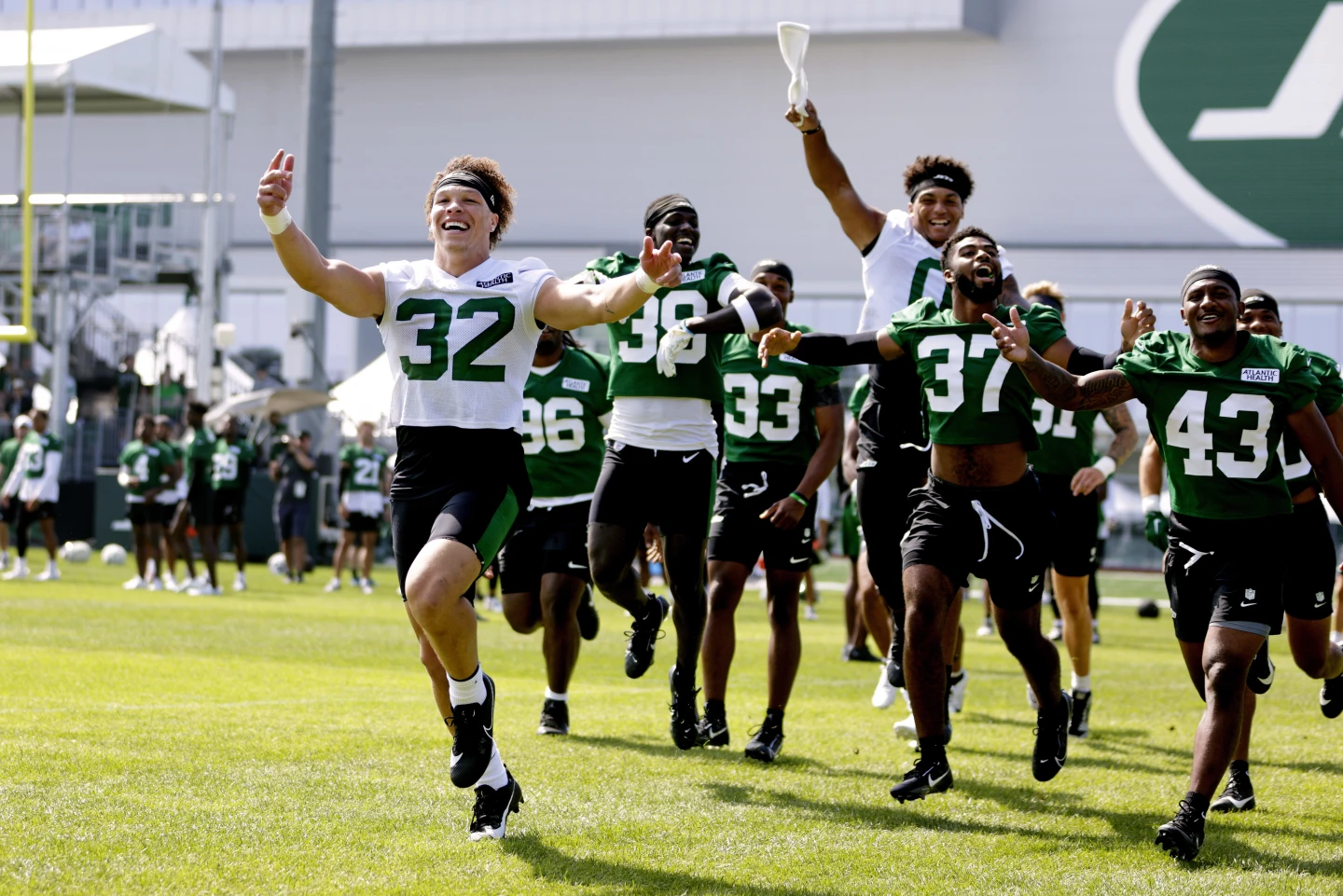Jermaine Johnson and the rest of the New York Jets’ defense were shocked, frustrated, and angry.
The San Francisco 49ers had just run all over them, gaining 180 rushing yards in the season opener on Monday night. And Christian McCaffrey didn’t even play. Instead, backup Jordan Mason stepped in and rushed for a career-high 147 yards, constantly leaving confused Jets defenders behind.
“That just wasn’t our standard,” Johnson said this week. “You know, obviously you get embarrassed. It’s out there. It is what it is. Now how are you going to take it?
“Are you going to be a finger pointer or a thumb pointer? That’s something I take very seriously.”
Johnson, the Jets’ top edge rusher—especially with Haason Reddick still holding out for a contract—blamed himself. Several of his teammates also took responsibility. So did coach Robert Saleh and defensive coordinator Jeff Ulbrich.
“It wasn’t good enough,” Ulbrich said, adding that the defense didn’t play to its standard. “And that’s everyone involved. That’s coaches, that’s every single player, that’s the call, and it starts with me, so we’ve got to be better and we will be better.”

They’ll get the chance to prove it on Sunday at Tennessee when they face the Titans, with both teams looking to bounce back from 0-1 starts.
“A response,” Ulbrich said about what he expects from his defense. “A response to what happened. And our standard be revealed, and it is really our style of play, more than anything.”
But it won’t be easy. Tony Pollard ran 16 times for 82 of Tennessee’s 140 rushing yards against Chicago last Sunday, averaging 5.1 yards per carry.
Several Jets players and coaches acknowledged it’s “a copycat league,” meaning until New York shows otherwise, opponents will try to take advantage of what seems to be a weakness.
“Edge setting was a thing that needs to improve,” Ulbrich said. “The perimeter run game is where most of the yards came from, and we weren’t setting the edges the way we usually do.”
Last season, the Jets were ranked No. 3 in overall defense but were 25th against the run. This number might be a bit misleading because the offense struggled a lot without the injured Aaron Rodgers at quarterback, leading to a tired defense spending a lot of time on the field and opponents running down the clock at the end of games.
With Rodgers back, New York managed to move the ball a bit against San Francisco. However, the Jets couldn’t find any consistency because the defense was unexpectedly overwhelmed early. The 49ers converted 6 of 13 third downs and ran 70 offensive plays compared to the Jets’ 49.
“They ran the ball well, and when teams run the ball well, it’s hard to stop them,” linebacker C.J. Mosley said. “And we didn’t get off the field on third down. So, two key parts of the defense that have been successful and we weren’t able to do that.”

The defense didn’t look much better when they watched the game film.
“Yeah, we just tell the truth,” Ulbrich said. “We tell the truth, acknowledge what happened, learn from it, grow, and keep it moving.”
Saleh believed that a major reason for the issues was players straying from the game plan and their individual assignments.
“It’s not that I was bothered, it was a little surprising because we pride ourselves on discipline and doing our jobs,” the coach said. “It felt like we kind of got a little out of whack in that regard. I’m not going to get into specific details that need to be fixed, but at the same time, I know we are capable of much more.
“And it wasn’t a physical thing. It was more about guys trying to do a little bit too much.”
This led to the Jets allowing the 49ers to score on eight straight possessions Monday night, with only an opening-drive punt and a kneel-down to end the game breaking the streak.
“It’s not the first time we have gotten punched in the mouth here on defense, and I felt like we have always responded,” Saleh said. “So, they will respond.”
